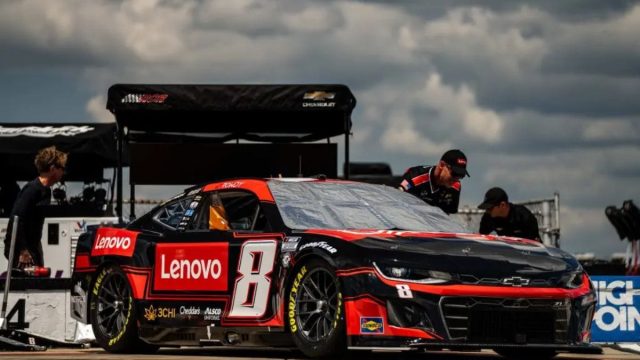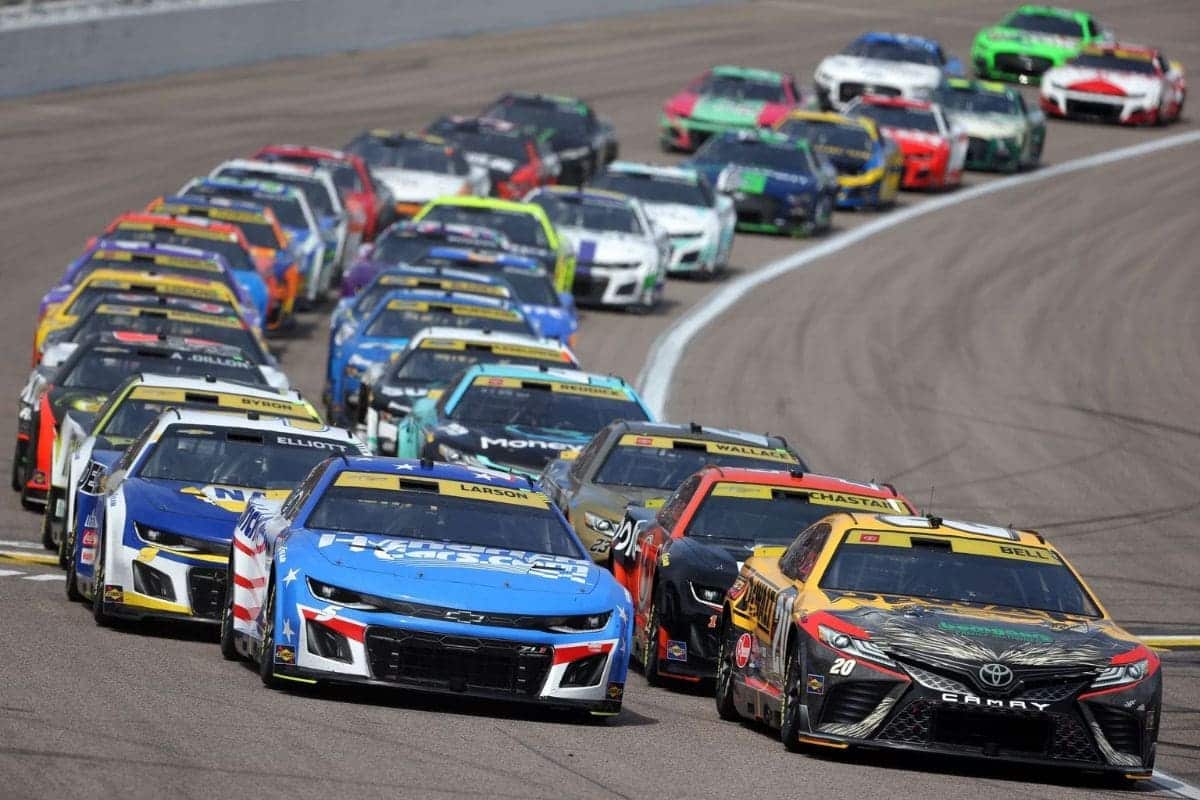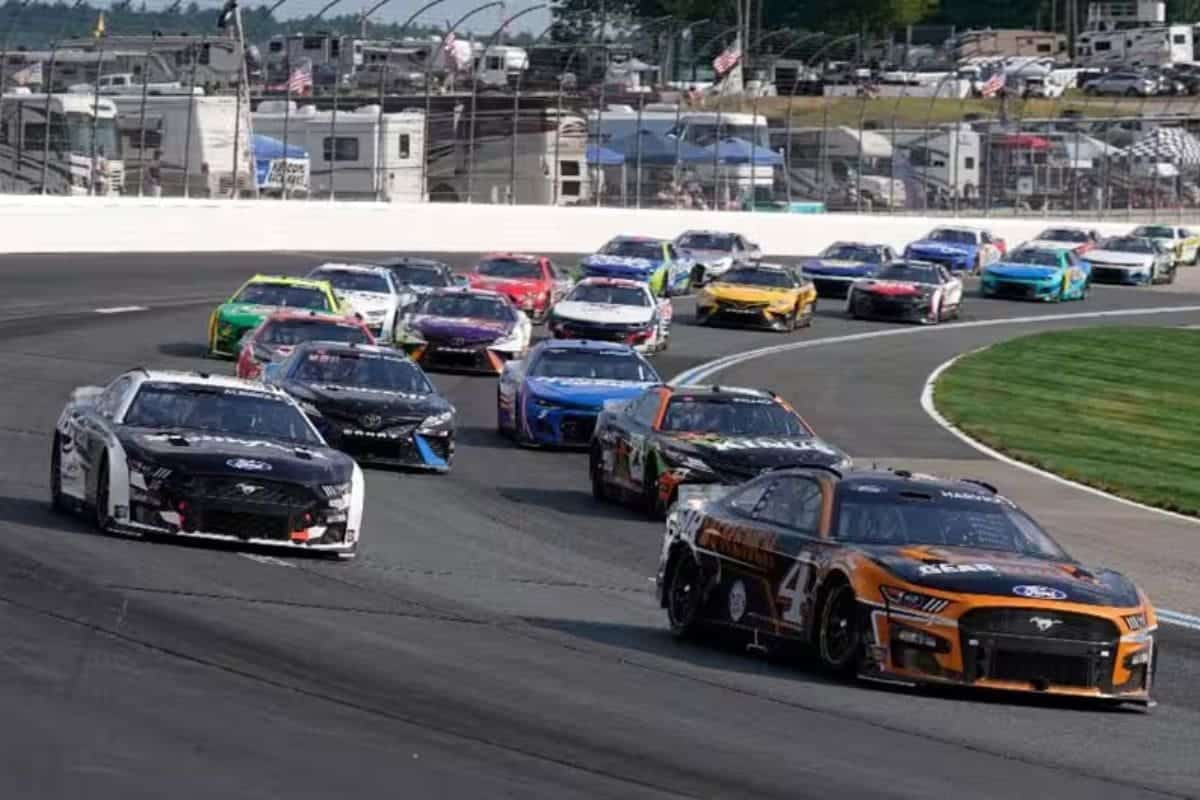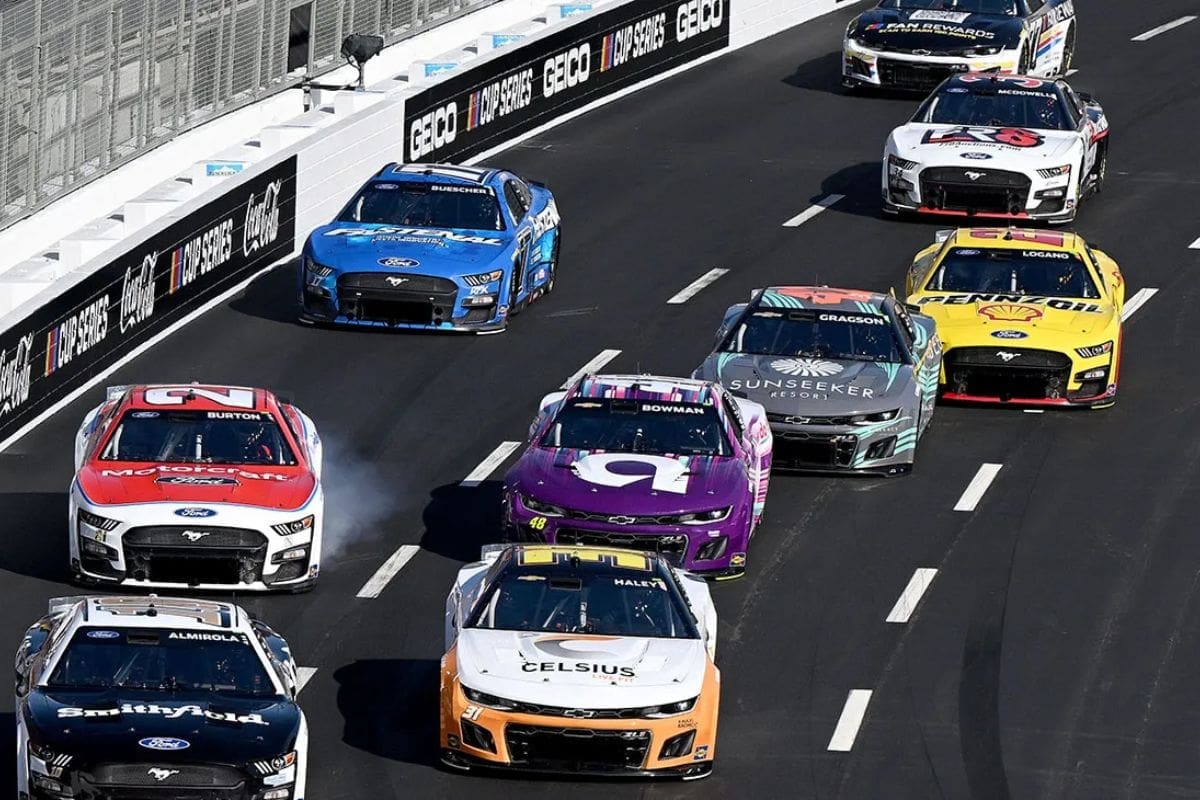RCR and Lenovo Collaborate: The partnership between Richard Childress Racing and Lenovo marks a groundbreaking era in NASCAR pit stops, blending RCR’s storied racing heritage with Lenovo’s cutting-edge AI technology. This collaboration aims to leverage AI to improve fueling accuracy, real-time data analytics, and strategic decision-making, thereby setting unprecedented benchmarks in pit stop efficiency. By integrating AI at the edge, the teams seek to deliver instantaneous insights that could redefine competitive racing standards. As these innovations unfold, the potential implications for race outcomes and the broader motorsports landscape are poised to be revolutionary.
Key Highlights
- RCR uses AI-driven data analytics and predictive modeling for pit stop performance improvements.
- Lenovo’s technologies enhance RCR’s race operations, ensuring real-time insights and precise fueling.
- In-car transponders and overhead cameras optimize pit stop accuracy and efficiency.
- Edge computing with Lenovo servers provides 99.4% fueling accuracy and immediate data processing.
- Future innovations include AR and AI for better coordination and faster tire changes.
Introduction to Richard Childress Racing and AI Implementation
Founded in 1969, Richard Childress Racing has not only solidified its legacy in NASCAR but has also become a pioneering force in the integration of artificial intelligence (AI) to revolutionize its performance strategies. With a storied history spanning over five decades, RCR has consistently demonstrated a commitment to excellence and a willingness to adopt cutting-edge technology to maintain its competitive edge. This forward-thinking approach has led RCR to collaborate with Lenovo, leveraging AI to gain invaluable insights and optimize different aspects of their racing operations.
AI implementation at RCR is multifaceted, encompassing data analytics, predictive modeling, and real-time decision-making. The extensive amounts of data generated during races—ranging from tire wear and fuel consumption to driver performance and track conditions—are carefully analyzed using AI algorithms. These algorithms, powered by Lenovo’s high-performance computing solutions, enable RCR to identify patterns and make data-driven decisions that improve race strategies and vehicle performance.
One of the critical applications of AI at RCR involves predictive maintenance. By analyzing sensor data from their fleet of race cars, RCR can anticipate mechanical issues before they occur, thereby reducing the risk of unexpected failures and improving overall reliability. Moreover, AI-driven simulations allow RCR to experiment with different race scenarios and pit stop strategies, providing a competitive advantage by optimizing timing and execution.
This seamless integration of AI highlights RCR’s dedication to innovation and precision engineering. By harnessing the power of AI, RCR not only improves its operational efficiency but also sets a benchmark for the entire NASCAR industry, showing how technology can be a game-changer in professional racing.
Importance of Fueling in NASCAR
Building on the inventive momentum from their AI-driven strategies, RCR has identified the precise management of fuel intake during races as a critical component for enhancing their race performance. Efficient fueling is not merely a logistical task but a sophisticated element of race strategy that can decisively influence race outcomes.
Each car needs a special fuel can that allows pit crews to quickly put in up to 11 gallons of gas at once. RCR saw that improving how they fuel the cars could save important seconds during races. They wanted to find out exactly how much fuel each car needed and plan the fuel stops carefully to do well in the race.
Moreover, strategically timed fuel stops can be the difference between maintaining a lead and losing critical ground to competitors. By leveraging data-driven insights, RCR can predict the best moments for refueling, aligning these stops with other necessary pit activities such as tire changes. This synchronization ensures that the car returns to the race in the shortest time possible, maintaining peak competitive performance.
The benefits of efficient fueling extend beyond immediate race gains. Over the course of a season, the cumulative effect of these optimized pit stops can result in significant performance improvements, potentially altering the trajectory of championship standings.
Collaboration with Lenovo for AI Integration
In their groundbreaking collaboration with Lenovo’s OEM Solutions team, RCR has harnessed the power of AI to transform the precision and efficiency of NASCAR pit stops. This creative partnership has yielded a state-of-the-art solution that utilizes AI algorithms to capture real-time fueling data, which is crucial to optimizing race strategies.
Lenovo created a smart solution with RCR to track fueling data. They used in-car transponders and an overhead camera in the pit box. This setup notices when an RCR car enters the pit box and starts a live video feed. An advanced AI then analyzes 30 video frames per second to pinpoint the exact times when the fuel can is connected and disconnected from the car.
Overhead cameras provide a vital visual dimension to the data capture process. By continuously monitoring the pit area, these cameras feed live footage to the AI algorithms, which then perform real-time analysis to identify and timestamp fueling events. This dual approach not only improves accuracy but also offers a detailed view of the fueling process, enabling RCR to make data-driven decisions with precision.
The solution runs on a Lenovo ThinkEdge SE360 V2 server. Anyone authorized on the network at the track can make multiple requests to it. It is set up as an API (application program interface), which makes it very easy to use.
“Delivering a solution that is easily interpretable by the user is a crucial part of our AI leadership. The API provides a browser viewpoint for anyone to check the status of pitstops and the duration, along with the log. The real-time results can be auto-populated in Excel for race engineers, supporting strategic decision-making.” – (Sachin Gopal Wani, AI Data Scientist)
Implementation of AI at the Edge
Leveraging the Lenovo ThinkEdge SE360 V2 server, equipped with NVIDIA® L4 Tensor Core GPU, RCR implements AI processing directly at the trackside, ensuring real-time monitoring and 99.4% accuracy in fueling activities under different environmental conditions. This technological leap represents a significant advancement in the precision and efficiency of pit stop operations, pivotal in the high-stakes environment of NASCAR racing.
The solution can manage multiple cars coming in at the same time. It is so efficient that it can handle 30 cars at once in real time. The system measures fueling with 99.4% accuracy, even at night or in bad weather. This helps RCR get better insights.
The ThinkEdge SE360 V2 is specifically designed to process data at the edge, enabling RCR to bypass latency issues associated with cloud-based solutions. By deploying AI capabilities directly at the track, the system can analyze and interpret data instantaneously, providing critical insights without delay. This real-time processing is vital during races where every millisecond counts, allowing RCR to make informed decisions swiftly.
Real-Time Insights and Future Innovations
AI helps RCR decide the best times to refuel during races. With data insights from Lenovo, RCR can gain up to four positions per pit stop, improving their competitiveness. Knowing the fuel level is vital, and pit stops are critical in races. This solution gives RCR the knowledge to plan better strategies and possibly win future races.
Harnessing real-time insights from AI-driven data processing, RCR is assured to revolutionize NASCAR pit stop strategies with exceptional precision and efficiency. The integration of advanced AI solutions enables the team to obtain real-time fueling data, which, when coupled with digital countdowns for drivers and crews, provides a significant tactical advantage. This innovation allows RCR to gain up to four positions per pit stop—a substantial leap in the highly competitive world of NASCAR racing.
This real-time insight not only optimizes current operations but also lays the groundwork for future innovations. RCR, in collaboration with Lenovo, is exploring several avenues to further improve pit stop performance. One promising development is the use of AI to calculate the fuel plug angle, ensuring precise fuel level measurements. This advancement aims to refine fuel management, reducing the margin for error and maximizing efficiency during pit stops.
Moreover, the partnership is investigating augmented reality (AR) solutions to enhance pit crew performance. Real-time tire-change monitoring through AR could transform the way pit crews operate, providing immediate feedback and enhancing coordination. This involves using audio and visual feeds to check if all the lug nuts on a car’s tires are properly tightened during a pit stop.
News in Brief: RCR and Lenovo Collaborate
The collaboration between Richard Childress Racing and Lenovo signifies a significant advancement in NASCAR pit stop efficiency through the integration of AI and cutting-edge technologies.
By focusing on fueling accuracy, real-time data analytics, and AI-driven insights, this partnership aims to set unprecedented standards in competitive racing.
The implementation of AI at the edge and continuous exploration of future innovations hold the potential to transform race outcomes, thereby redefining the paradigms of NASCAR pit stop strategies.
Our Reader’s Queries
Q. What does RCR in NASCAR stand for?
A. Richard Childress Racing, a distinguished entity in racing, marketing, and manufacturing, has been a powerhouse since its inception in 1969. With over 50 years of racing history, RCR boasts a remarkable record of more than 200 victories and 16 championships, including six in the NASCAR Cup Series with the iconic Dale Earnhardt at the wheel.
Q. Who drives the Lenovo NASCAR?
A. Lenovo has partnered with the renowned NASCAR team to introduce cutting-edge technology products aimed at revolutionizing motorsports. The global tech company will commence this collaboration with prominent branding on Tyler Reddick’s No. 8 Chevrolet Camaro ZL1 1LE for the upcoming Daytona 500.
ALSO READ: Is Richard Childress Racing Facing a Crisis? Pit Woes Spark Concern



